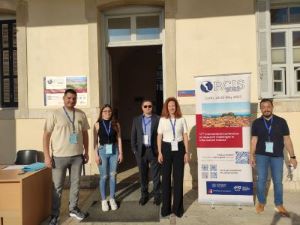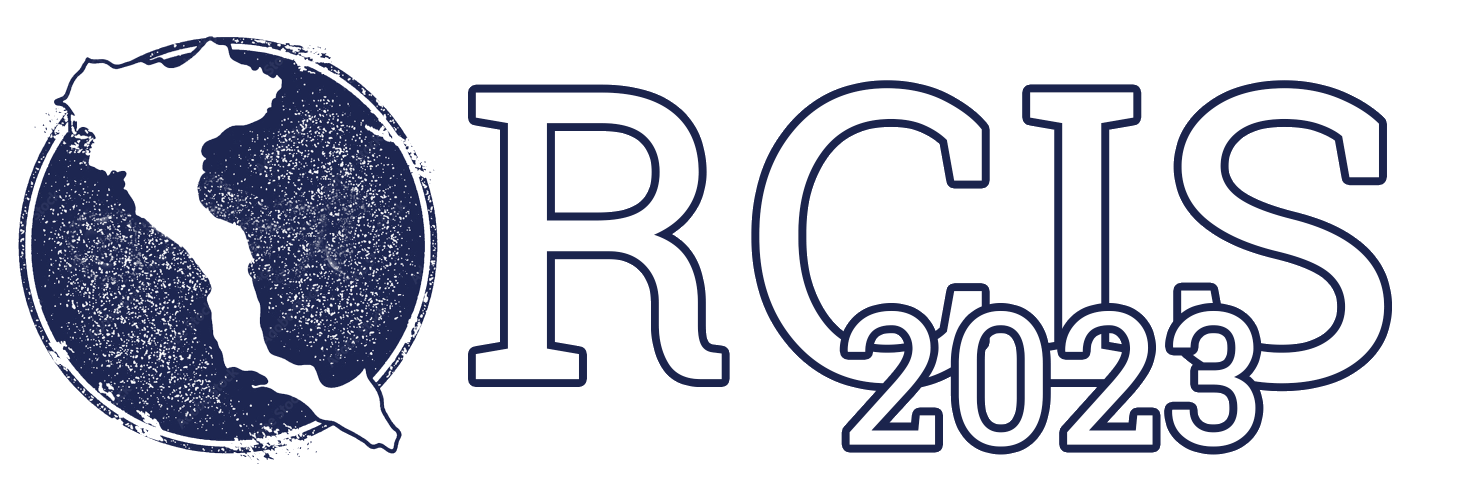Abstracts (*mandatory*): February 5th
Full Papers: February 10th
Place: Corfu, Greece. Hosting from Ionian University and NMSLab from the Department of informatics.
Research Challenges in
Information Science
The 17th International Conference, RCIS 2023, Corfu, Greece, 23-26 May, 2023
Submit
Call for papers are open. Submit HereDeadline 29 January 2023 Abstracts (Mandatory): February 5th, Full Papers: February 10th 2023
Download Call for Papers (PDF)
Information Systems and their Engineering
|
User-Oriented Approaches
|
Data and Information Management
|
Enterprise Management and Engineering
|
Domain-specific IS Engineering
|
Data Science
|
Information Infrastructures
|
Reflective Research and Practice
|
The proceedings of RCIS 2023 will be published by Springer in the Lecture Notes in Business Information Processing series. Papers shall be formatted according to the Springer LNCS/LNBIP conference proceedings template (for LaTeX and Word): https://www.springer.com/gp/computer-science/lncs/conference-proceedings-guidelines.
Papers that have already been accepted or are currently under review for other conferences or journals will not be considered for publication at RCIS 2023. Papers should be in English and must be associated to one of the following categories:
Technical solution papers (max 16 pages Springer) present solutions that are novel or significantly improve existing approaches. A technical solution paper must include a preliminary validation of the proposed solution, and results must be stated clearly enough so that it is possible to validate them in follow-up research.
Evaluation papers (max 16 pages Springer) evaluate existing problem situations or validate proposed solutions through scientific means, i.e., by empirical studies, experiments, case studies, simulations, mathematical proofs, etc. The research method must be sound and appropriate.
Industrial practice and experience papers (max 16 pages Springer) thoroughly present problems or challenges encountered in practice, elaborate on success or failure with existing approaches, or report on industrial practice (e.g., methods and tools). A paper in this category shall provide a clear context, detail the problem or the industrial practice, and explain the lessons learned.
Please note that the maximum length of the paper includes references, appendices, etc.
In addition to the main research track, RCIS 2023 invite submissions to the following tracks: Forum, Doctoral Consortium, Research Projects, Journal First,Tutorials, and Workshops.
The submission site for all types of submissions is https://easychair.org/my/conference?conf=rcis2023.
By submitting a paper, the authors agree that at least one of them will register to the conference and present the paper (one paper=one registration). The appearance of a paper in the Springer proceedings is dependent on the registration of one author within the early registration deadline on April 6th.
We adopt a single-blind review format, meaning that the author names are included in the paper itself under the paper title.
Important Dates
Abstract submission deadline (highly recommended Mandatory): January 21, 2023 Abstracts (*mandatory*): February 5th,
Full Papers: February 10th 2023
Regular paper submission deadline: January 29, 2023February 10, 2023
Notification to authors: March 20, 2023
Camera-ready copy deadline for all paper types: March 31, 2023
Author registration deadline: April 6, 2023
Conference: May 23-26, 2023
|
General Chair
Haris Mouratidis, University of Essex, UK Aggeliki Tsohou, Ionian University, Greece | ||
|
Program Chairs
Selmin Nurcan, Université Paris 1 Panthéon-Sorbonne, France Andreas Opdahl, University of Bergen, Norway |
||








